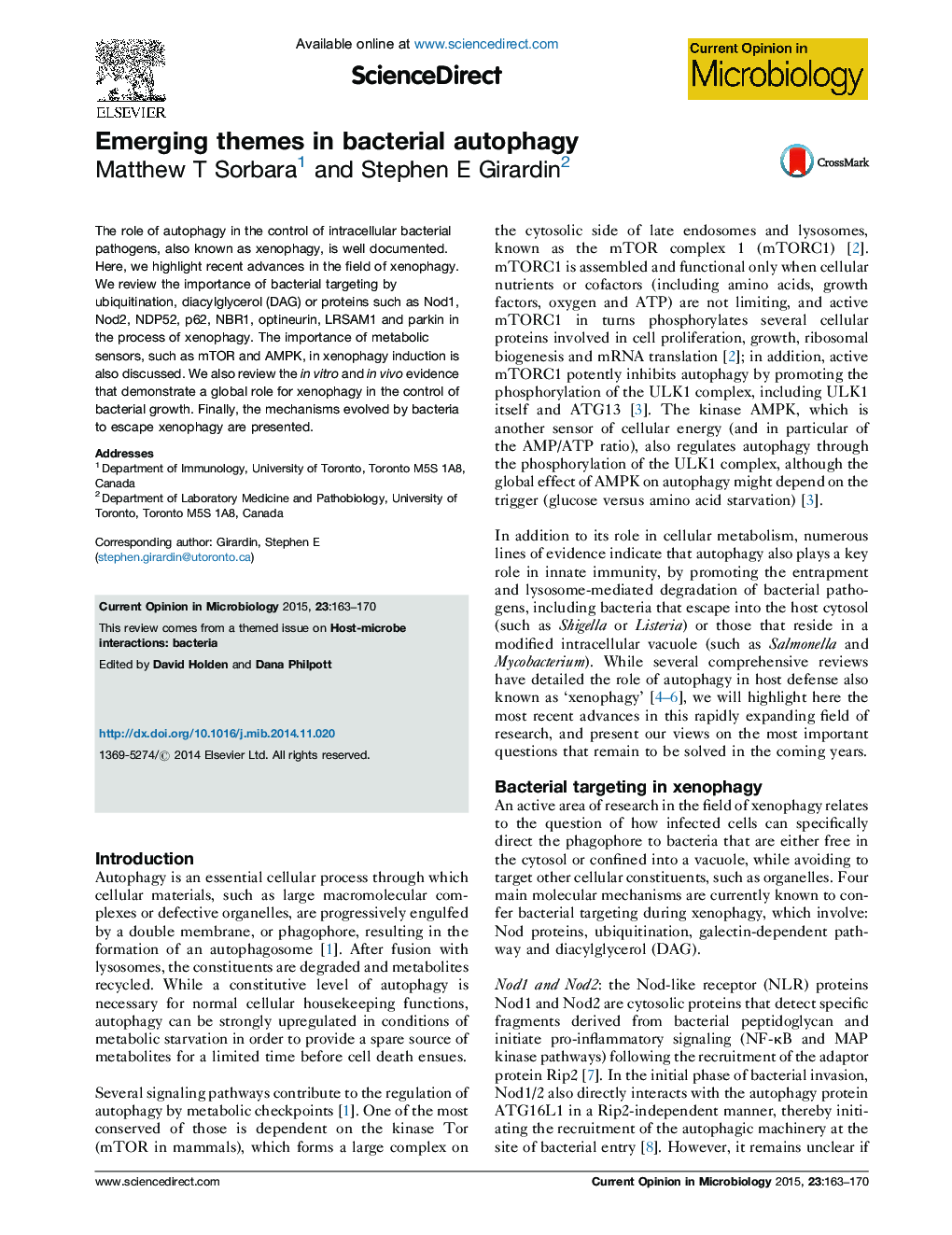| Article ID | Journal | Published Year | Pages | File Type |
|---|---|---|---|---|
| 6131960 | Current Opinion in Microbiology | 2015 | 8 Pages |
Abstract
The role of autophagy in the control of intracellular bacterial pathogens, also known as xenophagy, is well documented. Here, we highlight recent advances in the field of xenophagy. We review the importance of bacterial targeting by ubiquitination, diacylglycerol (DAG) or proteins such as Nod1, Nod2, NDP52, p62, NBR1, optineurin, LRSAM1 and parkin in the process of xenophagy. The importance of metabolic sensors, such as mTOR and AMPK, in xenophagy induction is also discussed. We also review the in vitro and in vivo evidence that demonstrate a global role for xenophagy in the control of bacterial growth. Finally, the mechanisms evolved by bacteria to escape xenophagy are presented.
Related Topics
Life Sciences
Immunology and Microbiology
Microbiology
Authors
Matthew T Sorbara, Stephen E Girardin,
